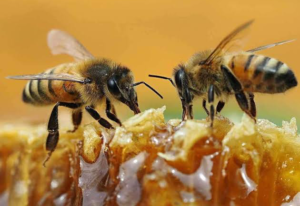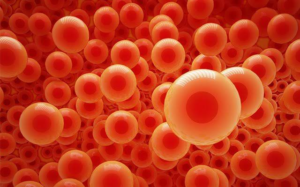
Honey is a sweet liquid made by bees using nectar from flowers. It is one of the most valued and appreciated natural substances known to mankind since ancient times because of its wide range of uses.
There are about 320 different varieties of honey, which vary in color, odor and flavor based on the type of flowers it’s made from. Honey contains 80% sugar as well as a mix of amino acids, vitamins, minerals, iron, zinc and antioxidants.
What are the Health Benefits of Honey?
Many of these health benefits are specific to eating raw honey, or unpasteurized, honey. Because during pasteurization, the high heat kills unwanted yeast, can improve the color and texture, removes any crystallization, and extends the shelf life and these processes destroys some of the beneficial components
Below are lists of medicinal benefits of eating raw honey;
Healing Wounds and Burn

Research suggested that honey, propolis, royal jelly and defensin-1 protein in honey promoted wound healing, particularly in burns.
It is worthy to know, that the honey used in research settings is medical grade, meaning it’s inspected and sterile. It’s not a good idea to treat cuts with honey you buy from a store.
Treatment of Sore Throat and Cough

A teaspoon of honey will soothe the throat and help stop coughs. According one study, honey worked better than two common cough medications and helped suppress nighttime cough in children.
Studies also suggested that the antibacterial and anti-inflammatory properties in honey are effective in improvement of upper respiratory tract infection and helping a sore throat.
Reduces Blood Pressure

High-quality natural honey contains important antioxidants including flavonoids and polyphenols that are found in propolis. Antioxidants can help reduce blood pressure. Darker varieties tend to offer more antioxidants than lighter varieties.
Gastrointestinal Disease Treatment

Honey helps tame the stomach flu, Honey contains many enzymes that aid food digestion. Studies suggests honey might help relieve gastrointestinal tract conditions such as diarrhea associated with gastroenteritis. Honey might also be effective as part of oral rehydration therapy.
Improves Brain Health

The polyphenols in honey counters inflammation in the hippocampus, the part of the brain involved in memory thereby improving memory.The antioxidant in honey can prevent cell damage within the brain. It also helps the body absorb calcium, which is essential to the brain to process thought and make decisions.
Contains Antioxidants

Antioxidants are Antioxidants are substances that prevents or slows down the damaging effect on the cells by free radicals. Honey contain antioxidants, including polyphenols, which prevent the accumulation of harmful free radicals and may reduce the risk of chronic disease.
Building Hemoglobin

Honey is remarkable in building hemoglobin in the body, which is largely due to the iron, copper and manganese content of honey. According to ancient Ayurvedic texts, it helps maintain the right balance of hemoglobin and red blood cells (RBCs).
Treatment of Skin Problems

Honey is one of nature’s most revered skin remedies. Due to its antibacterial and antiseptic abilities, it may benefit oily and acne-prone skin. Honey is also a natural humectant, so it helps keep the skin moist but not oily.
It is used Singly or in combination with other remedies to treat a lot of skin problems including; acne, pimples, eczema and help skin look more youthful.
Conclusion
Honey is safe to consume or use for Children and adults. Avoid giving honey — even a tiny taste — to babies under the age of 1 year. Honey can cause a rare but serious gastrointestinal condition (infant botulism) caused by exposure to Clostridium botulinum spores. Bacteria from the spores can grow and multiply in a baby’s intestines, producing a dangerous toxin.







Leave a Reply